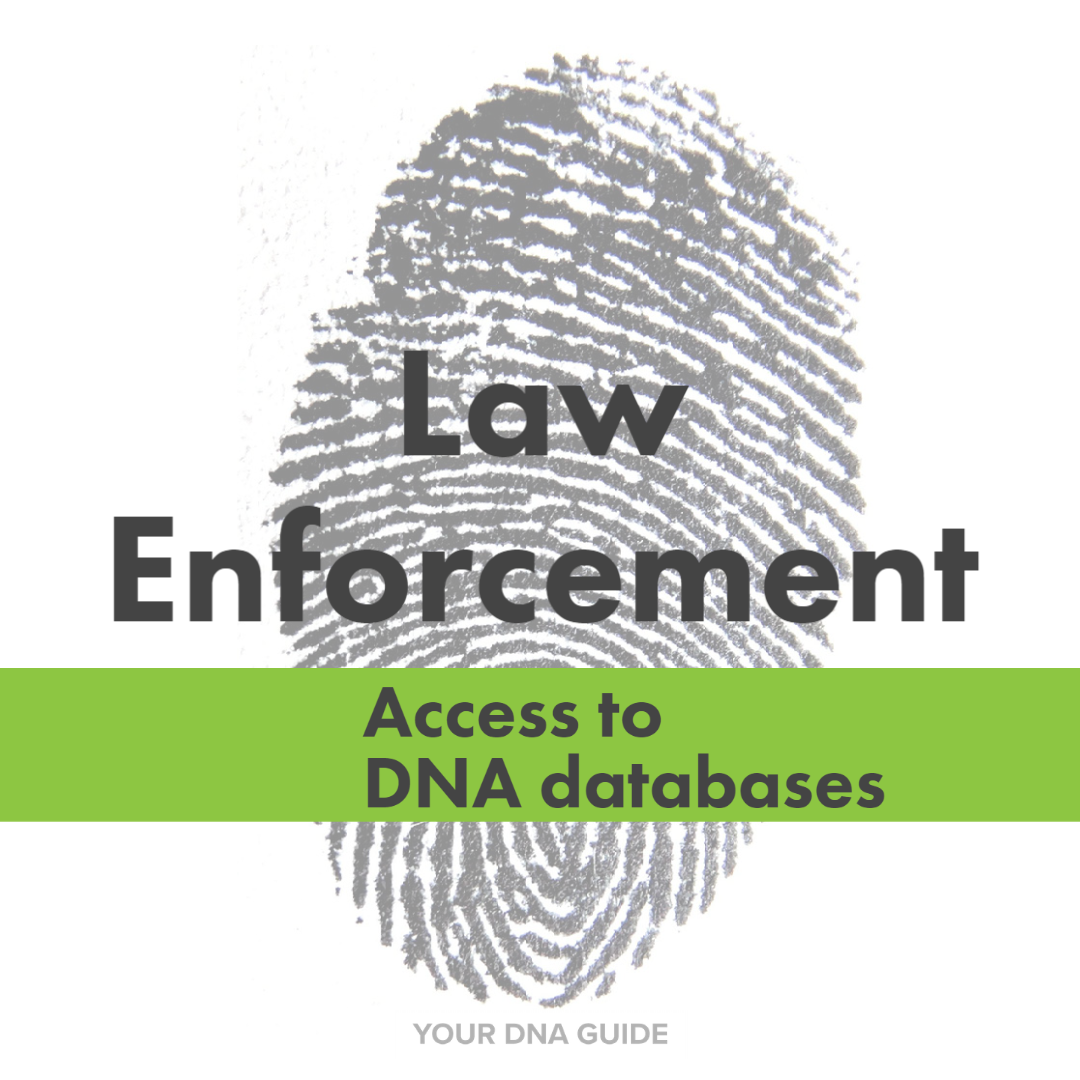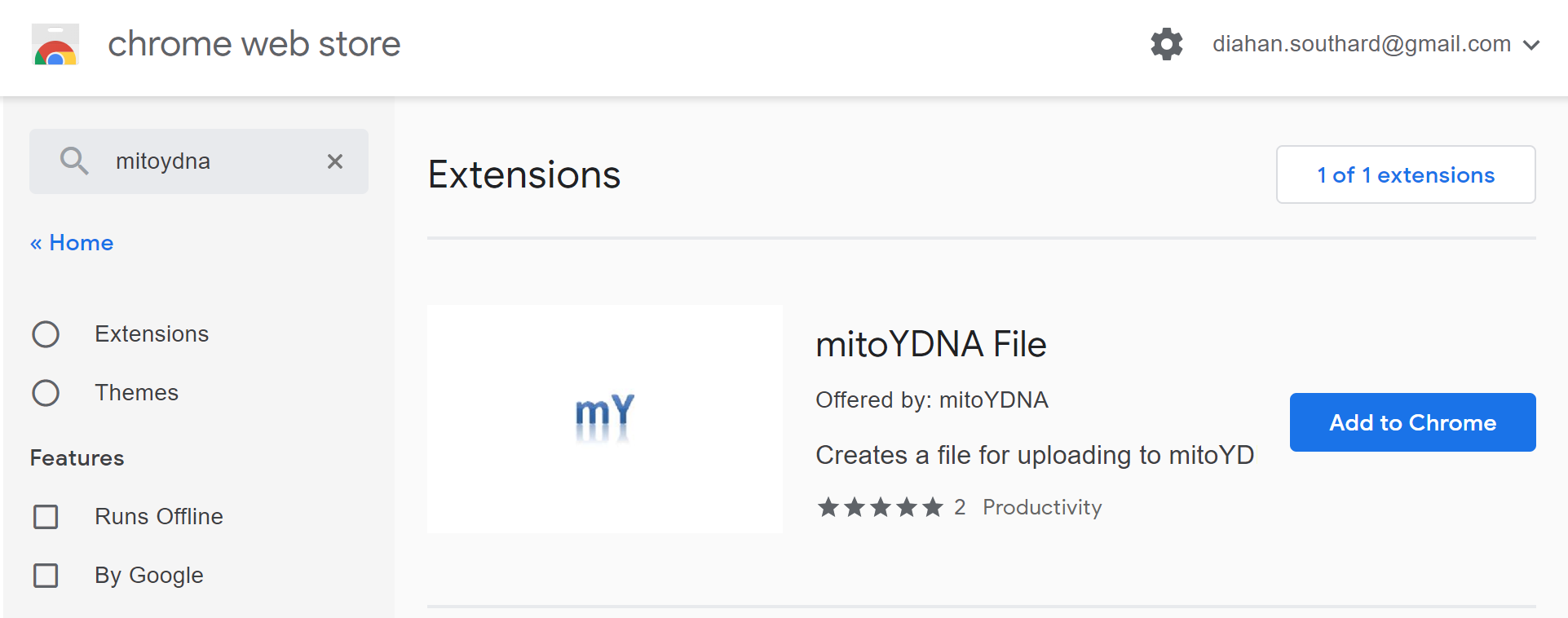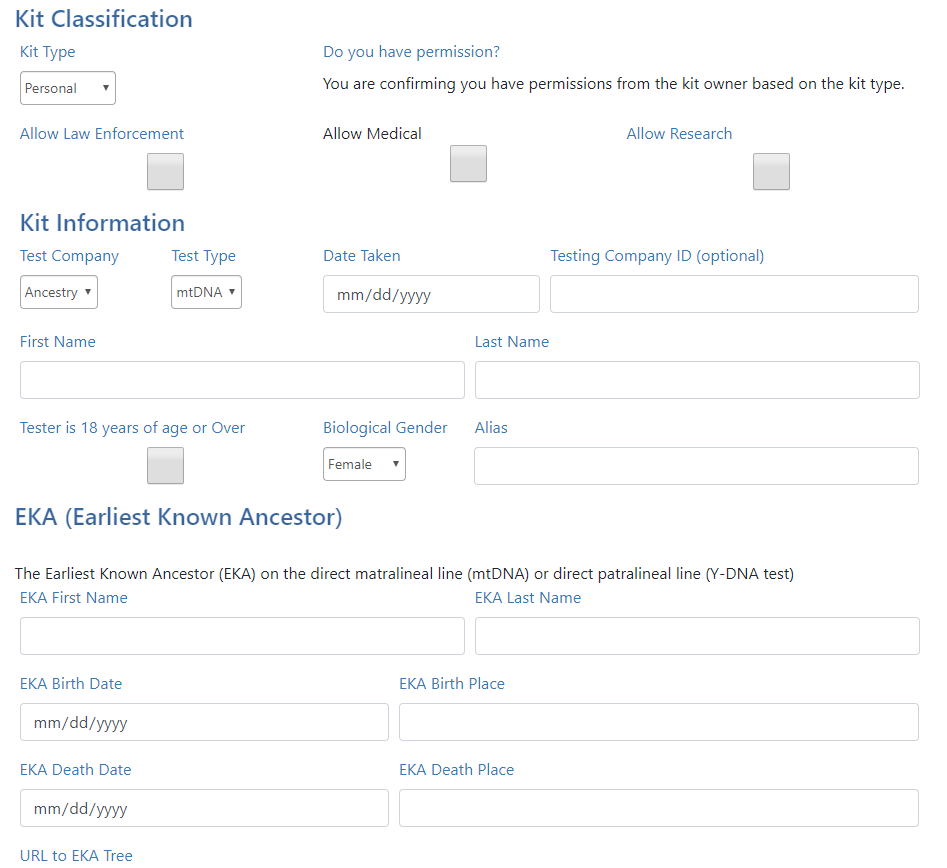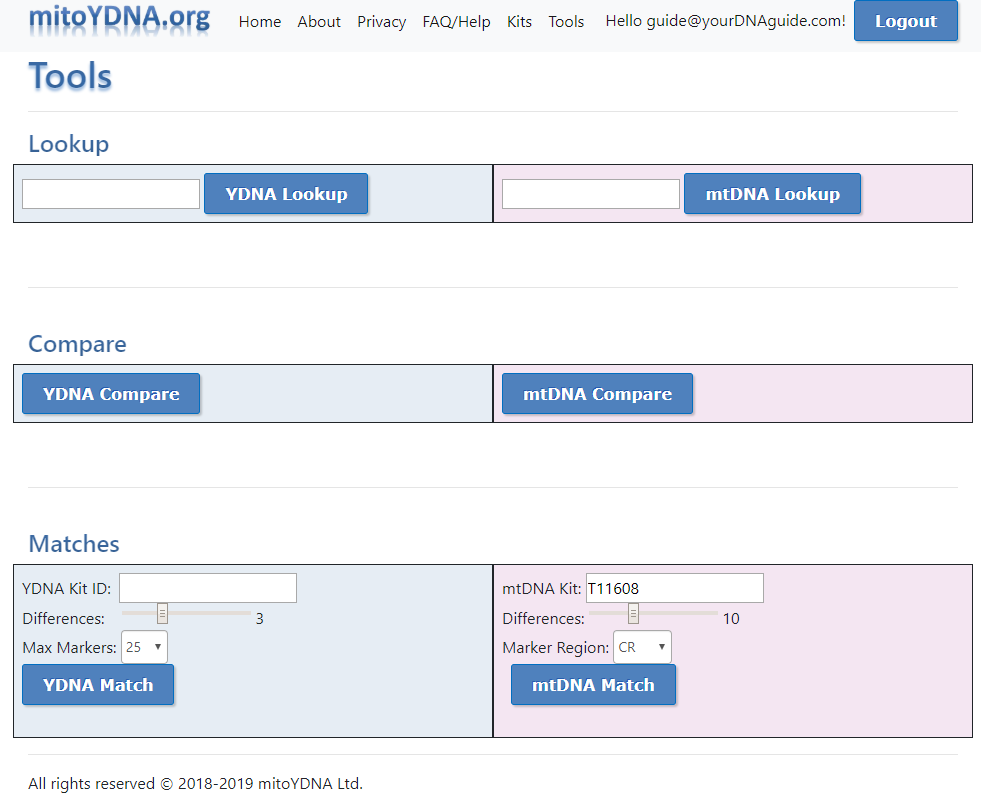Last updated: July 29, 2024
Y DNA and mtDNA just got better! The new mitoYDNA.org website promises free, crowdsourced DNA matching for YDNA and mtDNA tests, with options for research and law enforcement participation.
 A new website has launched for free sharing of Y DNA* and mitochondrial DNA data, with DNA matching, analysis and tools to help users further their genealogical research. It’s called mitoYDNA, and it’s promising to remain free, crowd-sourced and accessible to all. Here’s what it’s all about and how to participate.
A new website has launched for free sharing of Y DNA* and mitochondrial DNA data, with DNA matching, analysis and tools to help users further their genealogical research. It’s called mitoYDNA, and it’s promising to remain free, crowd-sourced and accessible to all. Here’s what it’s all about and how to participate.
mitoYDNA aims to replace the former Ysearch and Mitosearch public databases, which allowed people who tested with older, outdated companies have a place to share their Y DNA and mtDNA data, respectively—including with those who have more updated test results from the only company now selling these tests, FamilyTreeDNA. (The mitoYDNA website does not accept autosomal DNA data.)
Two days after the site launched in 2019, there were already about 800 kit uploads, split pretty evenly between Y DNA and mtDNA. As of July 2024 (when I last checked), they have made slow but steady progress. Their statistics page reports 10,976 total DNA kits, split almost evenly between Y DNA and mtDNA test types, with slightly more mtDNA tests. If you’re used to autosomal DNA testing numbers (which are in the millions), these numbers may sound low, but far fewer people take these tests to begin with. And the site is free. So if you’re looking for more YDNA or mtDNA matches, consider uploading to mitoYDNA.
How to Use mitoYDNA
Currently, the site accepts YDNA and mtDNA uploads from Ancestry (which used to sell those tests), Family Tree DNA and YSEQ. The site’s Frequently Asked Questions link to instructions for uploading your data from each of these sources.
Basically, to have the site automatically pull your Y-DNA or mtDNA data from Family Tree DNA (FTDNA), you can download a plug-in from Chrome. It adds a button to your FTDNA account that lets them grab your data and save it to your computer:
Then in the kit creation form at mitoYDNA, shown here, you choose that file from your computer to upload.
You can also manually enter mtDNA or Y DNA results from Sorenson, Genebase, Oxford, NatoGeo1.0, and others. They provide step-by-step instructions on how to manually enter this data.
 Note that you can choose to be a part of research (which they haven’t really defined yet) or opt-in to law enforcement searching. (Read about law enforcement policies of the major DNA testing companies).
Note that you can choose to be a part of research (which they haven’t really defined yet) or opt-in to law enforcement searching. (Read about law enforcement policies of the major DNA testing companies).
The mitoYDNA website offers these tools:
- Lookup: Find Y DNA or mtDNA information for a kit number.
- Compare: Compare the small HVR1 and HVR2 regions (so not the full sequence test) for up to 24 mtDNA kits (23 to the 1st kit).
For Y DNA, that means comparing genetic distance, haplogroup (your deep ancestral group) and markers (with differences highlighted).
- Matches: Find kits that match your kit, with the parameters you provide. For Y DNA you can choose how many differences from your match you want to see (called genetic differences) and choose on how many tested markers (Y DNA locations). For mtDNA you can choose how many differences you will allow between your kit and others and on which regions (HVR1 or HVR2 or HVR1+HVR2) you want them to look. Here’s what the screen looks like:
- Famous: enter a Y DNA or mtDNA kit to see if it matches a “famous” person in the mitoYDNA database.
- Search: you can search by name, location, or haplogroup to find kits that meet the criteria you’re looking for.
- YSTR+: displays YDNA data for one or more kits, including all markers from a YDNA kit, and allows you to manipulate and view the data in different ways
A little more about mitoYDNA
mitoYDNA is run by a nonprofit group comprised “of collaborative genetic genealogists who believe genealogists can have access to a Y-DNA and mtDNA database which includes Y and mtDNA testing from all available companies today and those of the future. mitoYDNA Ltd. is based on the principles [of] genealogical collaboration and continues to work to keep mitoYDNA straightforward, current [and] expanding.”
Check out this Ask the Experts with Mags Gaulden, founder of mitoYDNA, from July 2024 to hear more about mitoYDNA and how it got started.
By the way, I have talked with two of their leaders, Mags Gaulden and Rob Warthen, about hopefully making this the home for all of the Sorenson Molecular Genealogy Foundation mtDNA and Y DNA data.
 Learn more about YDNA in our free YDNA FREE Get Started Course. Learn the many ways YDNA might help you answer your questions about your family history. The free Get Started Course is an excerpt from our YDNA for Genealogy Course, which takes you deeper into understanding Y-haplogroups and using them in genealogy research (as well as other topics such as YDNA matching, surname project participation, and when to use Big Y).
Learn more about YDNA in our free YDNA FREE Get Started Course. Learn the many ways YDNA might help you answer your questions about your family history. The free Get Started Course is an excerpt from our YDNA for Genealogy Course, which takes you deeper into understanding Y-haplogroups and using them in genealogy research (as well as other topics such as YDNA matching, surname project participation, and when to use Big Y).
Tell me more about the YDNA FREE Get Started Course!




